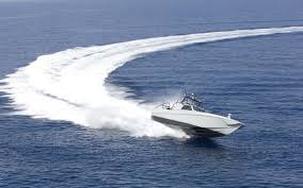|
As I teach and interact with others, one of the things I love doing most is helping people see the expansiveness and depths of God's Word. God's Word is expansive - it deals with big topics and tells the grandest story. And God's Word is deep - it contains truth and beauty that needs to be plunged into, and can be explored in greater and greater measure. The question, then, is this: How do we experience both the expansiveness AND the depth of Scripture as we read? In answering that question, I've found it helpful to rely on two images: (1) Bible reading as speedboating, and (2) Bible reading as scuba diving. Bible reading as speedboatingBible reading as speedboating is a great way to experience the expansiveness of Scripture. The goal here is to cover ground and read large chunks of Scripture in one sitting - but not simply for the sake of covering ground. The goal here is to cover ground for the sake of sensing and entering into the larger story Scripture tells. The goal here is to cover ground for the sake of gaining a better grasp on the context of individual books of the Bible, and seeing connections within (and across) books. The goal here is to grow in familiarity with Scripture - not a casual familiarity, but a familiarity such that we're comfortable navigating God's Word and are at home with it. This is often an approach to Scripture that is more foreign to many I talk with. But as we look at how God's people in Scripture approach God's Word, we get the sense that their focus wasn't exclusively on 15 minute tidbits (or 140 character tweets). Instead, we get the sense that they put themselves in front of God's Word in larger chunks than perhaps we are accustomed to. Consider just a few examples (bold emphasis added):
Bible reading as scuba divingBible reading as scuba diving is a great way to experience the depths of Scripture that sometimes lie beneath the surface. The Bible isn't a mile wide and an inch deep; Scripture is more like the Challenger Deep in the Mariana Trench of the Pacific Ocean - the deepest known point of the ocean. Because of this, we should want to continue exploring the depths of God's Word and mining its riches. This sort of exploration moves much more slowly than speedboating, but it is also a valuable, needed approach. The goal here is to take smaller, manageable passages of Scripture (chapters, sections, paragraphs, and even sentences) and pause long enough and think hard enough to appreciate the beauty of details that we may miss when speedboating. Here's where we observe unique words or repeated words authors use to appreciate what they're emphasizing. Here's where we ask good questions of the passage and study the meaning of phrases. Here's where we pause to read helpful commentaries and make use of other Bible study tools that shed light on meaning. Here's where we do the work of memorizing God's Word and meditating on it, so it becomes part of us in identifiable ways. Putting the two togetherThe thing is, both of these approaches to Scripture are needed. Properly understood, they're complementary, not in competition with each other. As we speedboat through books or larger sections, we may identify smaller passages we want to study much more closely. Or as we examine individual verses and chapters, we may be pushed to other sections of Scripture we want to read in large chunks and grow in familiarity with (the speedboat approach). The key is simply to remember that both approaches have their place, and grow in understanding the value of each. And the goal of either approach? To have Scripture form us - both in the larger story it tells (the story we're still part of), and in the smaller details that equally have tremendous significance. As we approach Scripture using either of these approaches, the goal is always to get into God's Word in such a way that God's Word gets into us. How have you benefited from either speedboating or scuba diving through Scripture? In what ways do you think BOTH approaches are important and have their place?
5 Comments
Bruce
9/19/2014 04:40:02 am
Thanks Tim.....a very nice write up showing the comparison
Reply
Brian
9/21/2014 12:23:52 am
Very nicely done Tim! I've seemed to recognize that what you so appropriately named 'speed boating' and 'scuba diving' tend to follow the hills and valleys of my own personal walk and life. When things are clicking along smoothly in life around me, I tend to be more of a speed boater. When difficulties or challenges create more of a valley, I find myself mimicking the same shape by scuba diving to find deeper understanding. I wonder if I am alone in this pattern.
Reply
Bruce
9/21/2014 11:38:56 am
I agree with you Brian.i find myself doing that same thing....digging deeper and taking my time when I'm really going through some difficult times. But just speeding along at other times when I'm feeling a little more care free.
Reply
Tim Wiebe
9/23/2014 02:36:59 am
Thanks for the comments, Brian and Bruce. However we approach Scripture (speedboating or scuba diving), let's all keep letting it shape us in the right ways!! Leave a Reply. |
Tim WiebeChristian. Husband. Father. Pastor. Learner. Contributor. Reader. Categories
All
Archives
June 2024
|
© 2014-2024 | 11607 M Circle, Omaha NE, 68137 | www.thebrooksideinstitute.net



 RSS Feed
RSS Feed
